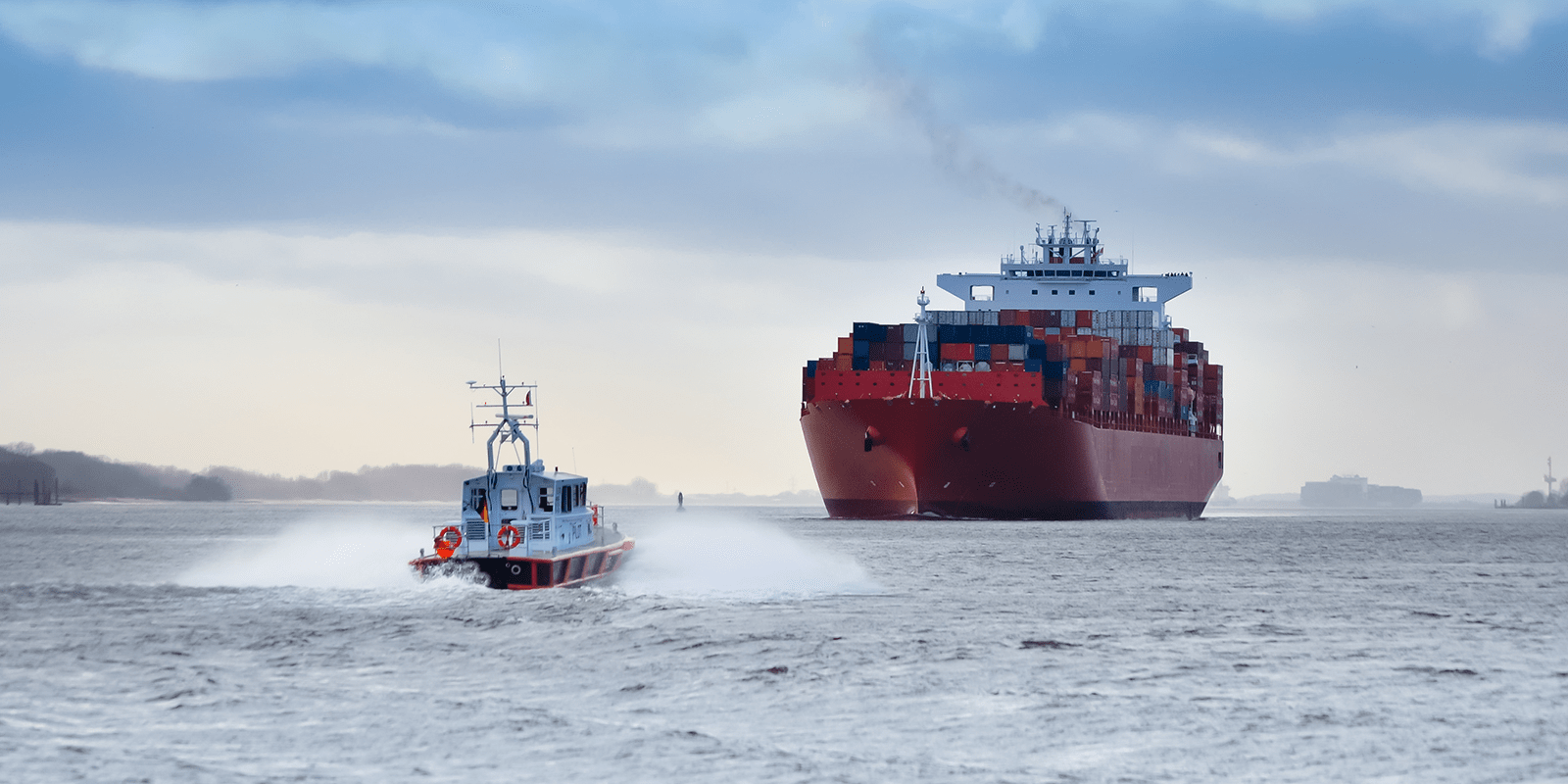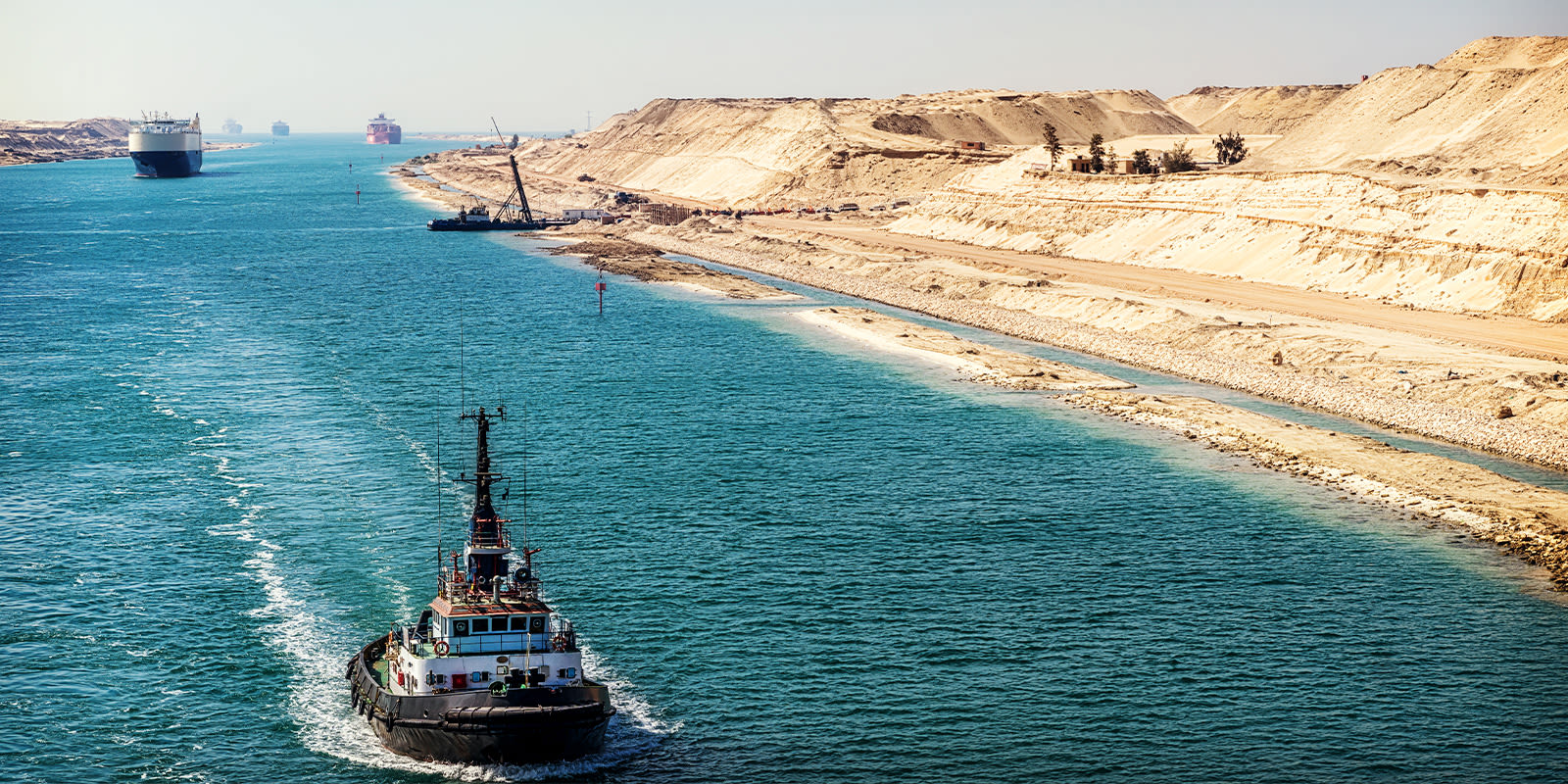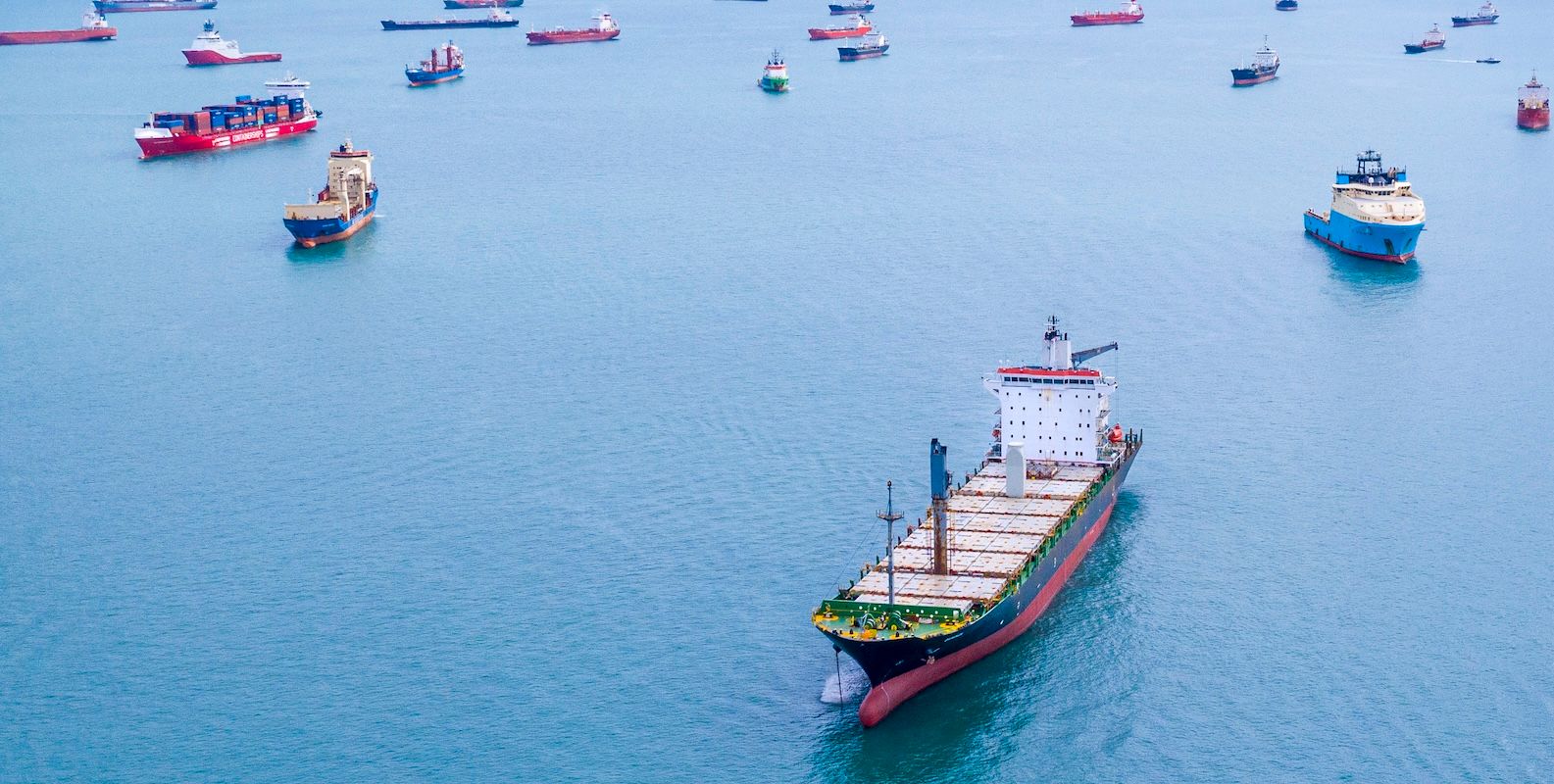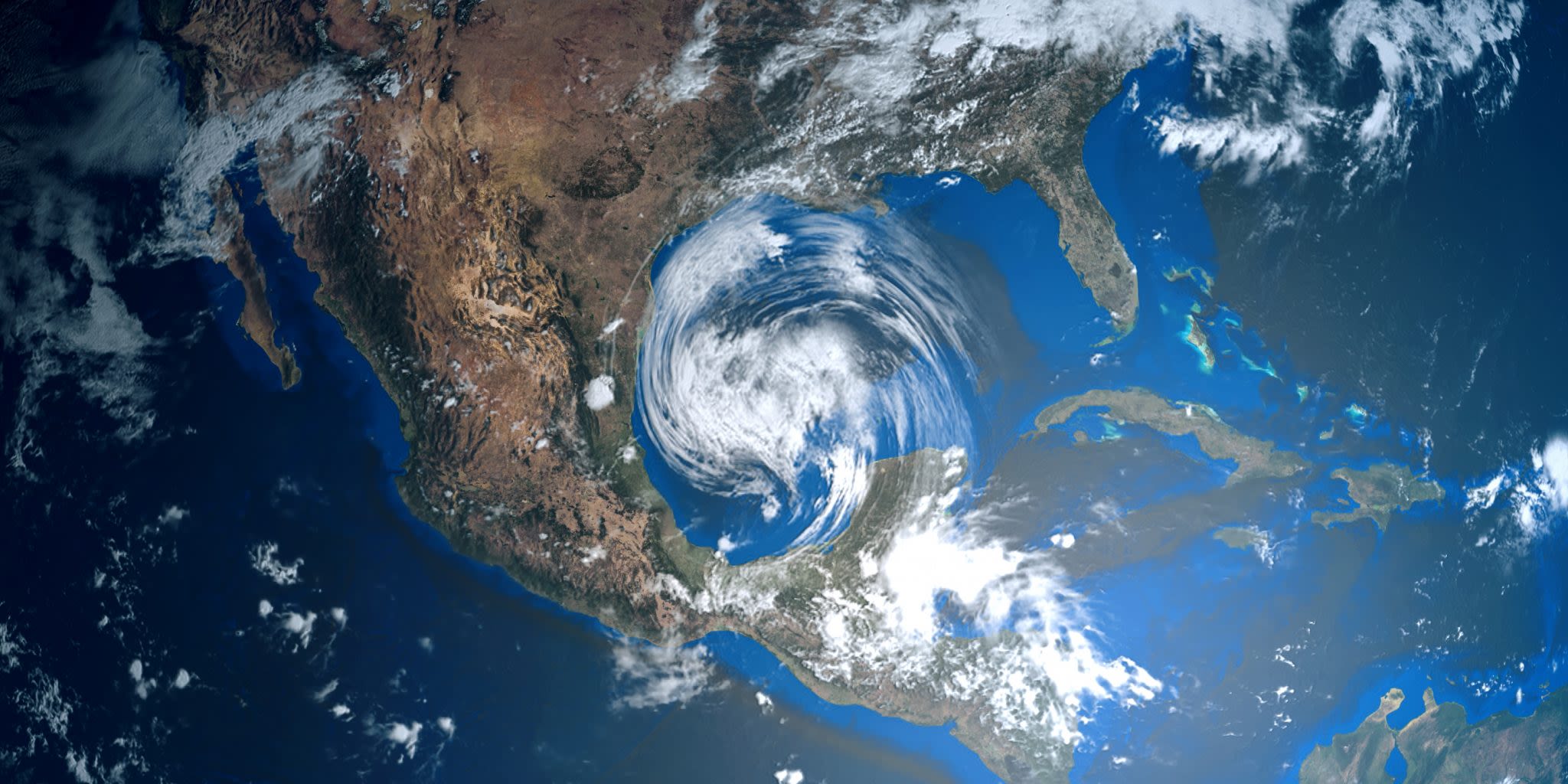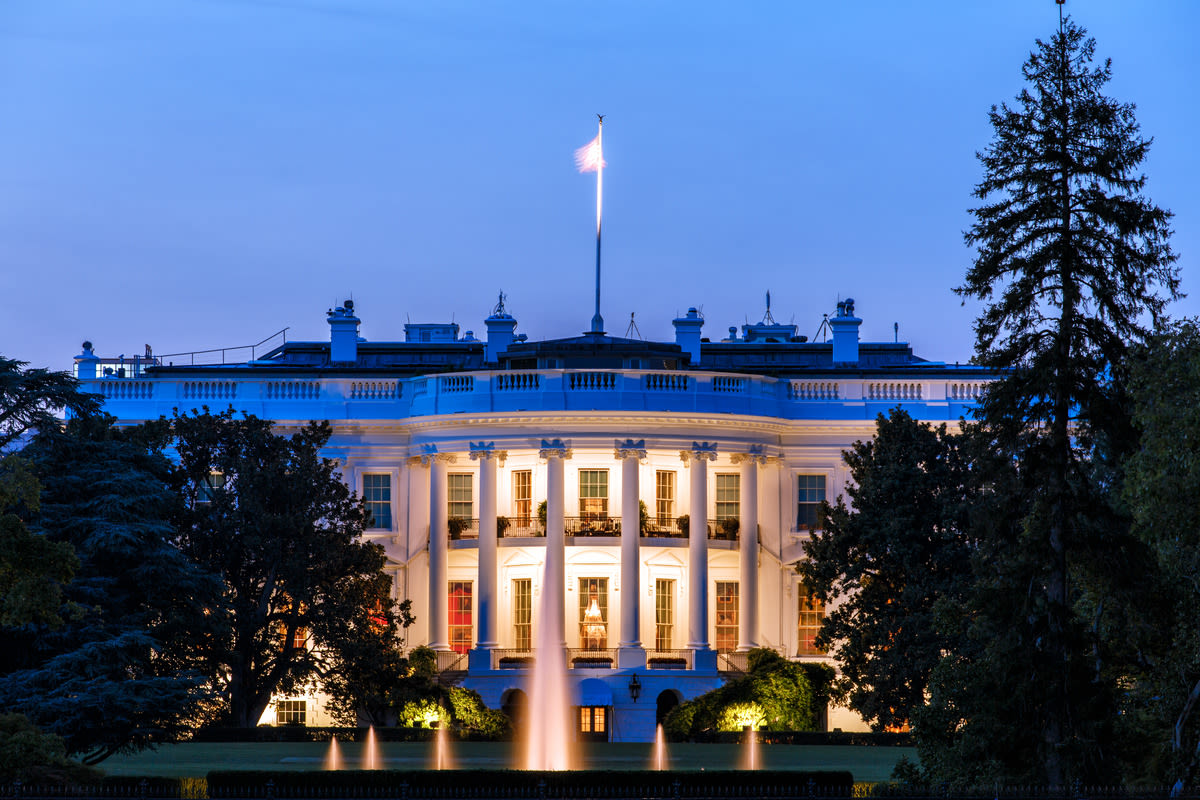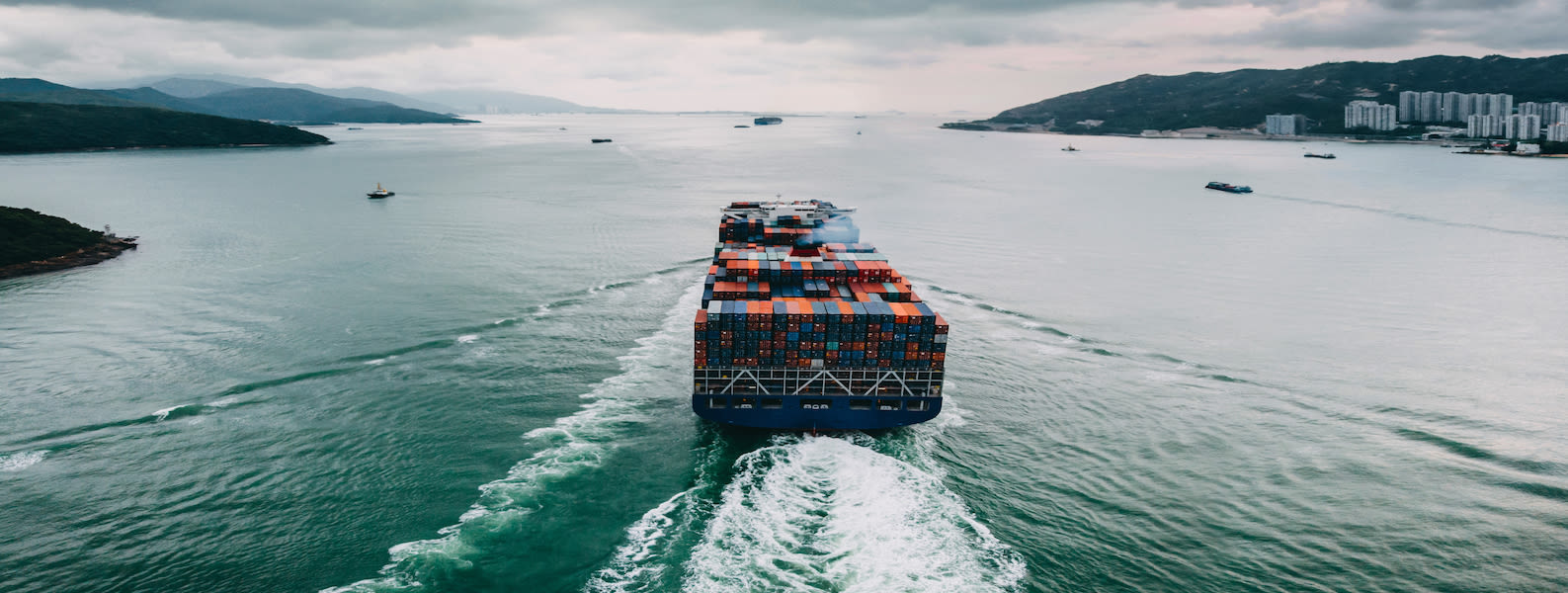
January 17, 2024
Hapag-Lloyd & Maersk Announce the Gemini Cooperation
Tags:
Hapag-Lloyd & Maersk Announce the Gemini Cooperation

January 17, 2024
On January 17, 2024 container vessel carriers Hapag-Lloyd and Maersk announced they will enter into a vessel sharing arrangement called the Gemini Cooperation beginning in February 2025. The current networks and services offered by both carriers will not drastically change in 2024 meaning there will be limited impact to shippers this year.
In January 2023, Maersk announced they would be disbanding their previous 2M Alliance with Mediterranean Shipping Company (MSC) in January 2025. Hapag Lloyd is currently a member of THE Alliance along with Ocean Network Express (ONE), Yang Ming, and Hyundai Merchant Marine (HMM). THE Alliance’s contract was planned to expire in 2030.
What Are Ocean Alliances?
Ocean alliances are cooperative groups of carriers. The carriers commit to vessel-sharing agreements in order to help cover as much of the ocean shipping market as possible.
Within each alliance, carriers pool together their fleets of container ships. This gives each carrier access to not just their own vessels, but the vessels owned or chartered by every other carrier in the alliance. It also means carriers may move containers on one another’s behalf.
These vessel-sharing agreements are the foundation of each alliance, and they allow carriers within an alliance to extend their service offerings and geographic coverage.
Global Reach of Maersk, Hapag-Lloyd
Together, Maersk and Hapag-Lloyd currently operate vessels with a capacity of 6.1 million TEUs which is 22% of global container capacity. According to the official announcement, the new cooperation will consist of 290 vessels accounting for 3.4 million TEUs of capacity with Maersk deploying 60% and Hapag-Lloyd deploying 40% of the capacity, respectively. Under the new cooperation, the carriers are targeting to provide schedule reliability above 90% versus a historical industry average of 60-70%.
Their shared network is focused on major east-west trades connecting Asia, the Middle East, Europe, and North America. Maersk and Hapag-Lloyd will announce the official vessel rotations and schedules over the course of 2024. The length of the cooperation is unknown at this time, but is labeled “long-term” in both carriers’ official announcements. Container carrier alliances typically last anywhere from five to ten years.
As of January 17, 2024, MSC, ONE, Yang Ming, and HMM as well as the Ocean Alliance which consists of CMA CGM, Evergreen, COSCO, and OOCL have not announced new plans for future carrier alliances.
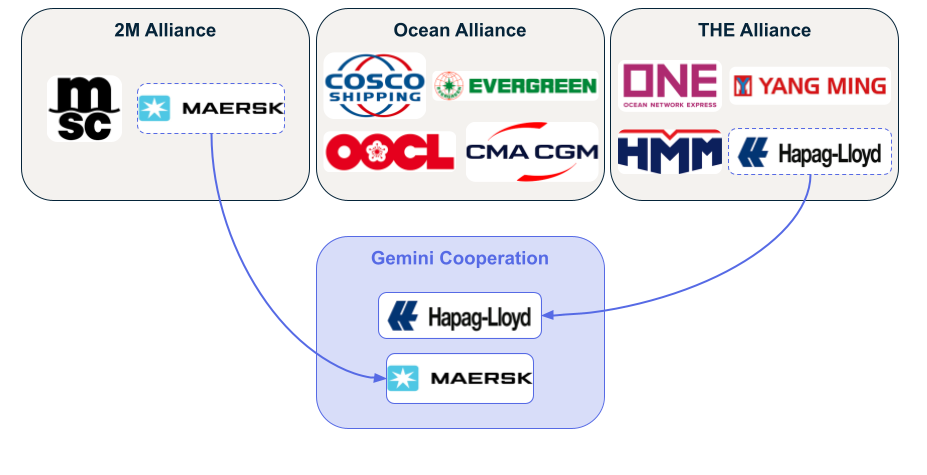
What Shippers Can Expect
In times of carrier network changes, both large and small, shippers can mitigate service disruptions by having multi-carrier strategies. Flexport works across all major container vessel operators in the above mentioned alliances as well as those not in an alliance including Matson, ZIM, Independent Container Line (ICL), and Wan Hai Lines to ensure we have access to all global networks to provide comprehensive and quality service for our customers’ extensive supply chains.
Flexport provides both carrier-specific and carrier-agnostic offerings across a spectrum of transit times and price points to empower customers to make the best decision for the cargo in their logistics network. Flexport powers these offerings with AI-based schedule estimation algorithms to facilitate lead time calculations and inventory planning.
Contact Flexport for More Information
For any questions related to these service changes, please reach out to your Flexport account manager who can help you build the best modal strategy for your supply chain. To learn more about these carrier network changes and how you can plan ahead, be sure to to sign up for Flexport’s Freight Market Update Live webinar on January 18.
The contents of this blog are made available for informational purposes only and should not be relied upon for any legal, business, or financial decisions. We do not guarantee, represent, or warrant the accuracy or reliability of any of the contents of this blog because they are based on Flexport’s current beliefs, expectations, and assumptions, about which there can be no assurance due to various anticipated and unanticipated events that may occur. This blog has been prepared to the best of Flexport’s knowledge and research; however, the information presented in this blog herein may not reflect the most current regulatory or industry developments. Neither Flexport nor its advisors or affiliates shall be liable for any losses that arise in any way due to the reliance on the contents contained in this blog.
About the Author

January 17, 2024
Related content
About this author
